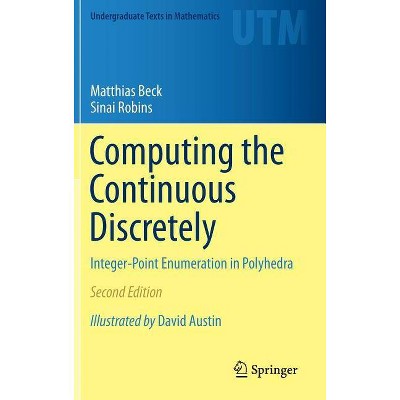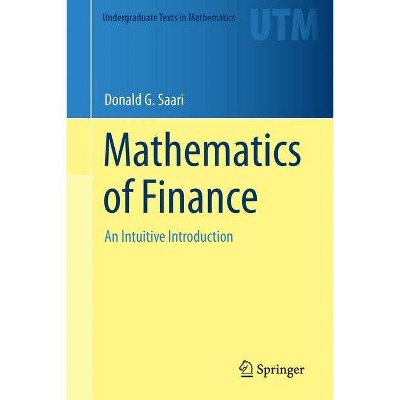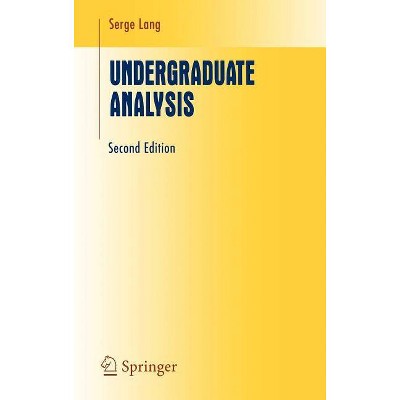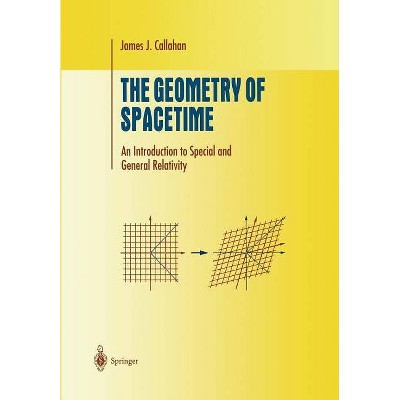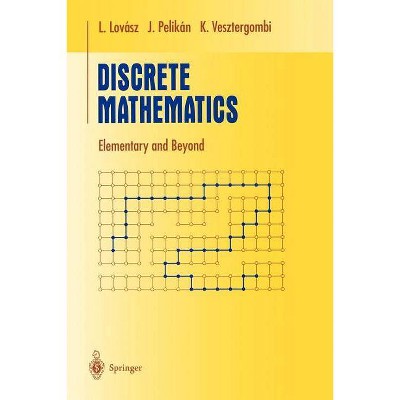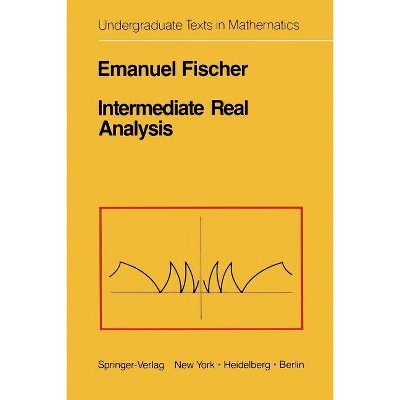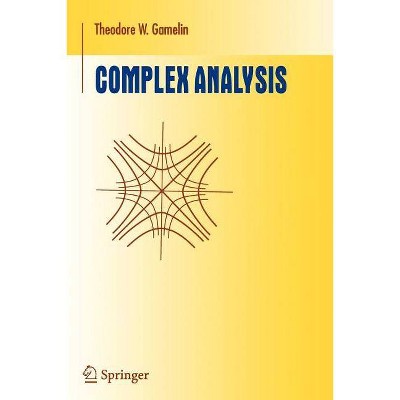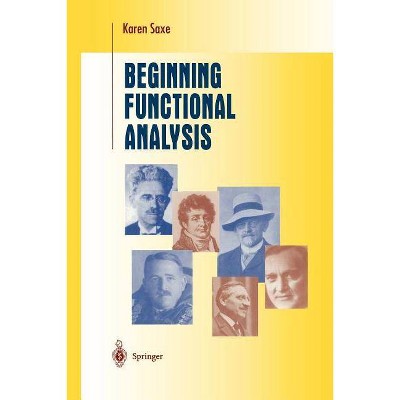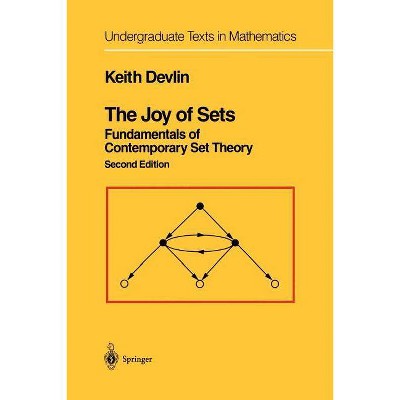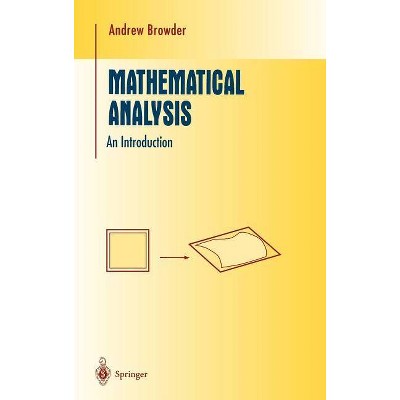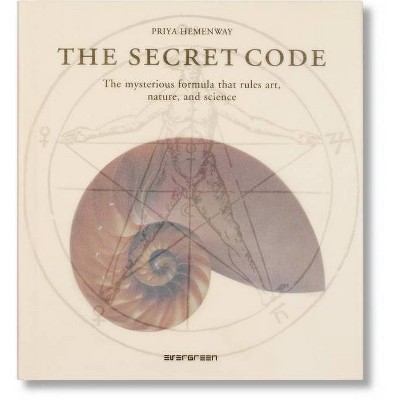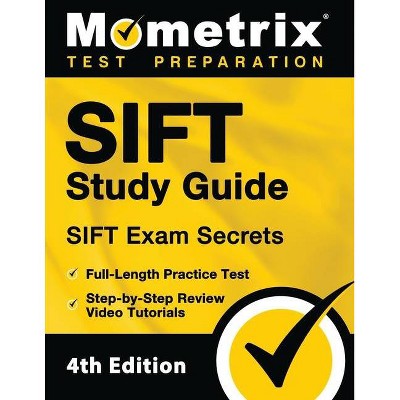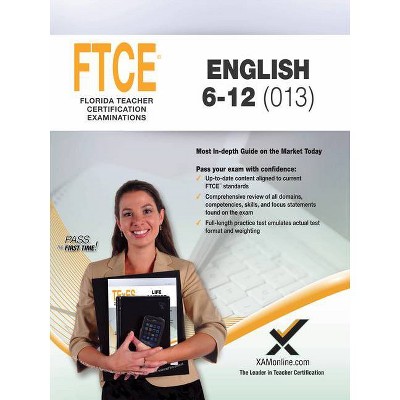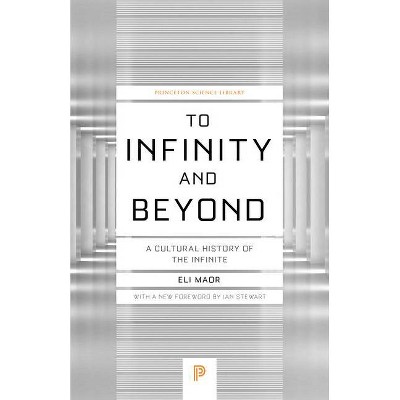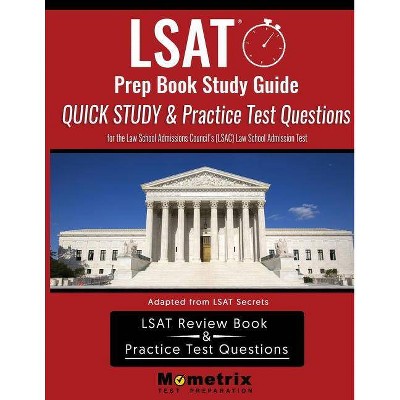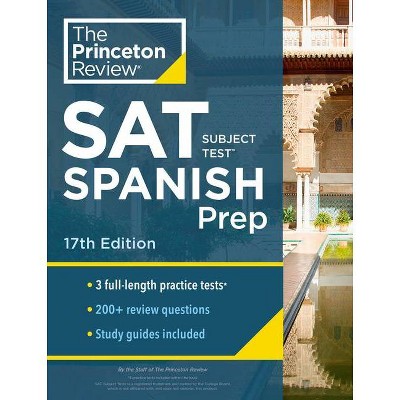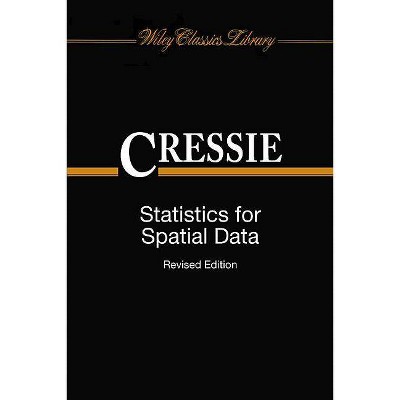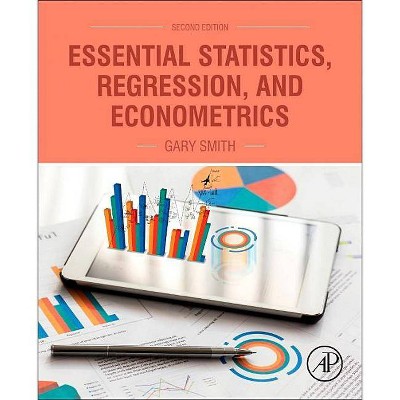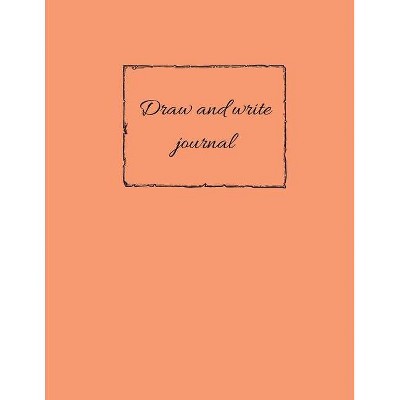The Art of Proof - (Undergraduate Texts in Mathematics) by Matthias Beck & Ross Geoghegan (Paperback)
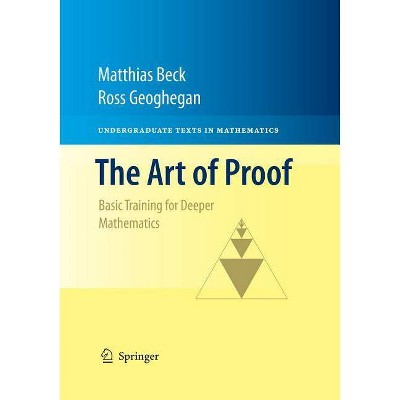
Similar Products
Products of same category from the store
AllProduct info
<p/><br></br><p><b> About the Book </b></p></br></br>Written to accompany a one- or two-semester course, this text combines rigor and wit to cover a plethora of topics from integers to uncountable sets. It teaches methods such as axiom, theorem, and proof through the mathematics rather than in abstract isolation.<p/><br></br><p><b> Book Synopsis </b></p></br></br>Preface.- Notes for the Student.- Notes for Instructors.- Part I: The Discrete.- 1 Integers.- 2 Natural Numbers and Induction.- 3 Some Points of Logic.- 4 Recursion.- 5 Underlying Notions in Set Theory.- 6 Equivalence Relations and Modular Arithmetic.- 7 Arithmetic in Base Ten.- Part II: The Continuous.- 8 Real Numbers.- 9 Embedding Z in R.- 10. Limits and Other Consequences of Completeness.- 11 Rational and Irrational Numbers.- 12 Decimal Expansions.- 13 Cardinality.- 14 Final Remarks.- Further Topics.- A Continuity and Uniform Continuity.- B Public-Key Cryptography.- C Complex Numbers.- D Groups and Graphs.- E Generating Functions.- F Cardinal Number and Ordinal Number.- G Remarks on Euclidean Geometry.- List of Symbols.- Index.<p/><br></br><p><b> From the Back Cover </b></p></br></br><i>The Art of Proof</i> is designed for a one-semester or two-quarter course. A typical student will have studied calculus (perhaps also linear algebra) with reasonable success. With an artful mixture of chatty style and interesting examples, the student's previous intuitive knowledge is placed on solid intellectual ground. The topics covered include: integers, induction, algorithms, real numbers, rational numbers, modular arithmetic, limits, and uncountable sets. Methods, such as axiom, theorem and proof, are taught while discussing the mathematics rather than in abstract isolation. Some of the proofs are presented in detail, while others (some with hints) may be assigned to the student or presented by the instructor. The authors recommend that the two parts of the book -- Discrete and Continuous -- be given equal attention. The book ends with short essays on further topics suitable for seminar-style presentation by small teams of students, either in class or in a mathematics club setting. These include: continuity, cryptography, groups, complex numbers, ordinal number, and generating functions.<p/><br></br><p><b> Review Quotes </b></p></br></br><br><p>From the reviews: </p><p>"<i>The Art of Proof</i> is a surprising union of rigor with taste and wit. The authors take a hard-core axiomatic approach, but the writing is never dry. Instead, topics are carefully chosen and meticulously developed with grace and humor, careful attention to detail, and just the right number of skill-building exercises and thought-provoking problems. <p/>"The text is spare--well under two hundred pages--but contains a thorough axiomatic development of the integers and the reals, along with non-standard optional topics such as Cayley graphs and generating functions. Instead of the standard scattershot "symbolic logic-set theory-functions-proof by contradiction-zzzz..." books, this text keeps its focus on just a few fundamental ideas, of which induction is the most important. This helps my students to feel that they are participants in a grand undertaking--the construction of a number system--rather than passive victims of one proof technique after another." --Paul Zeitz (Mathematics Professor at the University of San Francisco)</p><p>"This qualitative transition presents a most acute pedagogical challenge. ... This book does feature definite mathematical content, contrasting with works that aim at decoupling purely logical apparatus from strictly mathematical concerns. ... The authors write with the authority of research mathematicians and clearly mean to open that avenue to students. Summing Up: Recommended. Upper-division undergraduates through professionals." (D. V. Feldman, Choice, Vol. 48 (8), April, 2011)</p><p>"This book offers an approach well-balanced between rigor and clarifying simplification. Dilbert and Foxtrot cartoons with philosophical quotes presage the introduction of axioms and preliminary propositions. This graceful and witty blend succeeds well in a textbook for a post-calculus course transitioning a student to higher mathematics. The Art of Proof can also well serve independent readers looking for a solitary path to a vista on higher mathematics." (Tom Schulte, The Mathematical Association of America, November, 2010)</p><p>"This is an undergraduate text to extend, in a deeper and formal way, the usual initial knowledge of mathematics. The book deals with classical topics like integers, induction, algorithms, real numbers, rational numbers, modular arithmetic, limits, uncountable sets ... . The publication may be useful for people using the book to teach a course on the above mentioned topics. ... The aim behind this textbook is teaching how to read and write mathematics as well as understanding key methods and concepts." (Claudi Alsina, Zentralblatt MATH, Vol. 1198, 2010)</p><br><p/><br></br><p><b> About the Author </b></p></br></br><p>Matthias Beck received his initial training in mathematics in Würzburg, Germany, received his Ph.D. in mathematics from Temple University, and is now associate professor of mathematics at San Francisco State University. He is the recipient of the 2013 MAA Haimo Award for Distinguished College or University Teaching of Mathematics. He is the author of a previously published Springer book, <i>Computing the Continuous Discretely</i> (with Sinai Robins). </p><p>Ross Geoghegan received his initial training in mathematics in Dublin, Ireland, received his Ph.D. in mathematics from Cornell University, and is now professor of mathematics at the State University of New York at Binghamton. He is the author of a previously published Springer book, <i>Topological Methods in Group Theory</i>.</p>
Price History
Cheapest price in the interval: 28.99 on October 27, 2021
Most expensive price in the interval: 28.99 on December 20, 2021
Price Archive shows prices from various stores, lets you see history and find the cheapest. There is no actual sale on the website. For all support, inquiry and suggestion messagescommunication@pricearchive.us
